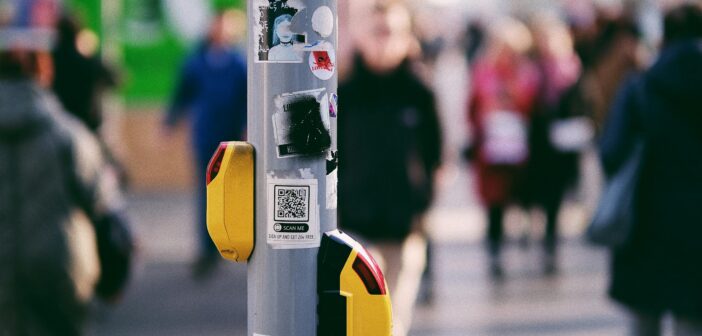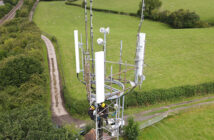Efficiency and accessibility are paramount in the fast-paced world of real estate. Enter QR codes – those pixelated squares that have become ubiquitous in marketing materials, packaging, and now, real estate listings.
QR codes offer a seamless way to provide prospective buyers or renters with instant access to crucial information, such as property details, virtual tours, and contact information. However, as with any digital tool, ensuring the safety of QR codes is of the utmost importance. It’s crucial to be cautious when utilizing QR codes, especially those generated by free QR code creator platforms, as they may pose security risks if not properly vetted.
Streamlined Access to Information
QR codes have become popular in the real estate industry in recent years. Here’s how they are revolutionizing the way properties are marketed and accessed:
- Convenience: Gone are the days of manually typing in web addresses or jotting down contact details. Potential buyers or renters can instantly access comprehensive property information with a quick scan of a QR code. This includes everything from price and square footage to interior photos and neighborhood amenities.
- Accessibility: QR codes provide an inclusive way for individuals with disabilities to access property information. By incorporating QR codes into printed materials, such as brochures or signage, real estate professionals can ensure everyone can access essential details equally.
- Security: Utilizing QR codes generated by reputable sources adds a layer of security. Opting for trusted QR code creator platforms helps safeguard against potential scams and ensures the integrity of shared information.
Furthermore, QR codes’ versatility extends beyond marketing materials to property showings themselves. Agents can strategically place QR codes throughout a home, allowing visitors to access detailed information about each room or feature with a simple scan. This streamlined approach enhances the viewing experience and empowers potential buyers or renters to make informed decisions efficiently.
Facilitating Virtual Tours
In real estate, QR codes serve a potent role in enabling virtual tours. When placed on “For Sale” or “For Rent” signs, these codes invite passersby to scan them, immersing themselves in a virtual walkthrough of the property. This approach not only saves time for buyers and sellers but also enriches the viewing experience. Virtual tours offer an immersive experience, allowing potential buyers or renters to explore properties from the comfort of their homes. This convenience is particularly valuable for out-of-town buyers or those with hectic schedules who cannot visit properties in person.
Moreover, real estate agents streamline the viewing process by offering virtual tours through QR codes. They can allocate their time more efficiently, focusing on serious inquiries rather than arranging numerous property visits. This not only saves time but also optimizes resources for all involved parties.
Secure Communication Channels
QR codes offer a secure method for agents to communicate with potential clients. By encoding contact details into a QR code, agents can ensure inquiries reach the intended recipient without interception or tampering. This direct communication streamlines the process, allowing interested parties to connect with the appropriate agent instantly, eliminating manual data entry and reducing the risk of miscommunication or missed opportunities.
Real estate professionals can use secure QR code generation platforms to enhance security. These platforms employ encryption protocols and access controls to safeguard sensitive information, ensuring only authorized individuals can access the linked data. Despite the evident benefits of integrating QR codes into real estate listings, security concerns persist, particularly with the increasing prevalence of cyber threats. Therefore, adopting best practices is essential to protect sensitive information effectively. Here are some key considerations for ensuring the safety of QR codes in real estate:
- Vetted QR Code Generators: When creating QR codes for property listings, it’s crucial to use reputable and secure QR code generators. Opt for platforms prioritizing data encryption and offering customizable features to control access permissions.
- Dynamic QR Codes: Unlike static QR codes containing fixed data, dynamic QR codes allow for real-time updates and tracking. This added layer of flexibility enables agents to modify the information linked to a QR code without reprinting or redistributing it, reducing the risk of accessing outdated or inaccurate content.
- Educating Clients: As QR codes become more prevalent in real estate marketing, it’s essential to educate clients about potential security risks and best practices for safe scanning. This includes advising them to use trusted QR code scanning apps and to exercise caution when scanning codes from unknown sources.
QR codes are revolutionizing the real estate industry, offering unparalleled convenience and accessibility for both agents and clients. However, with this growing adoption comes the need for vigilance. Secure QR code generation practices are crucial. ME-QR’s tools prioritize data security, giving you peace of mind. Additionally, consider using dynamic QR codes offered by ME-QR. These allow for real-time updates to property information, ensuring your listings remain accurate and engaging.
Finally, it is vital to educate clients on safe scanning habits. By partnering with ME-QR and utilizing their secure QR code generator, real estate professionals can harness QR codes’ full potential while safeguarding sensitive information.




